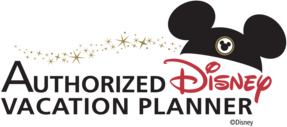EAR PRESSURE AND FLYING
We have all heard the painful cry of babies as the plane is landing. Perhaps, we have felt unexpected ear pressure or pain ourselves with altitude changes. If you are susceptible to airplane ears, there are some things that can help.
Why does it happen? The middle ear is supposed to be filled with air at the same atmospheric pressure as the outside world. It is the job of the tiny eustachian tubes to make sure this happens, but they don't always work as well as we would like. When we have a cold or allergy, the eustachian tubes may become swollen, and thus unable to regulate pressure. Minor pressure may feel like fullness, an ear that will not "pop", or even a strange crackling sensation. When the pressure is severe, the pain may be quite impressive.
What To Do Before You Fly
Adults:
If you have a cold or allergy problem, talk to your doctor about prescribing or recommending some medications that may help prevent airplane ears. These include oral or short-acting nasal decongestants, antihistamines, or prescription nasal steroids sprays. Since many of these medications have side effects or problems for people with high blood pressure, heart disease, pregnancy, thyroid disease, etc., you should NOT self-prescribe (or treat others for that matter) without first consulting your medical provider.
Yawning and swallowing will open the eustachian tubes. Many seasoned travelers chew gum, suck on mints or candy, or slowly drink water during take-off or landings.
Popping your ears: If nothing has worked to prevent the ear pain, you may need to unblock your ears by this pressure equalization maneuver: Pinch your nose and close your mouth. Try to direct the air to the back of your throat and then gently blow (not to hard!) to increase the pressure, directing the air up the eustachian tube. If you hear or feel a pop your ears should open. This maneuver may need to be repeated throughout your descent.
A special type of ear pressure-regulating earplug (EarPlanes) available at pharmacies or the airport convenience stores may be worth trying during ascent and decent.
Infants and Children:
1. Like adults, infants with ear infections should not fly. If possible, the trip should be postponed for a few days to give the antibiotic a chance to work.
With the permission of your medical provider, infant decongestant nasal sprays can be safely used for children over the age of two. It is used about one hour before flying (or one hour before landing). For children younger than age two, certain oral decongestants (like pseudoephedrine) can be used. Saline (salt water) nasal sprays may also be helpful in the dry air of an airplane.
During landing (and even take-off), babies should be encouraged to either breast or bottle-feed to encourage swallowing. Older children can drink from a cup.
If the ear pain does not go away upon landing, your medical provider should be consulted. It is not unusual for infants and young children to develop middle ear infections after a recent plane flight.


